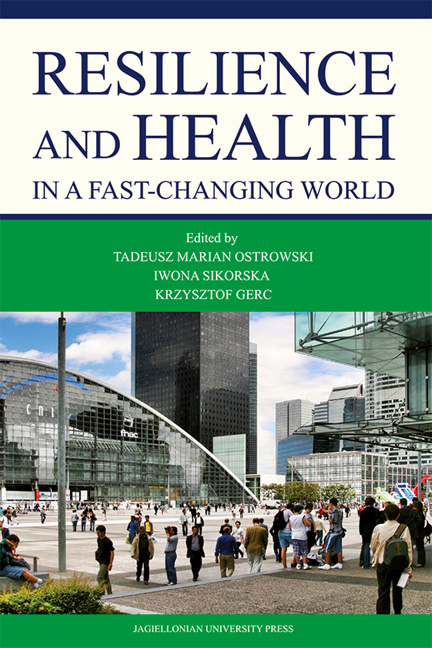Book contents
- Frontmatter
- Table of Contents
- Resilience from a Variety of Theoretical Perspectives: an Introduction
- I RESILIENCE IN THE PHILOSOPHICAL AND THE EXISTENTIAL CONTEXTS
- Resiliency and the Meaning of Life
- Building Resilience Today: How Can Ancient Stoicism Help
- Stoicism at War: from Epictetus and Marcus Aurelius to James Stockdale
- II SOCIAL CONTEXTS OF RESILIENCE
- III PROMOTING OF RESILIENCE AND ASSISTED RESILIENCE
- IV THREATS TO MENTAL HEALTH
- List of Authors
Building Resilience Today: How Can Ancient Stoicism Help
from I - RESILIENCE IN THE PHILOSOPHICAL AND THE EXISTENTIAL CONTEXTS
Published online by Cambridge University Press: 12 January 2018
- Frontmatter
- Table of Contents
- Resilience from a Variety of Theoretical Perspectives: an Introduction
- I RESILIENCE IN THE PHILOSOPHICAL AND THE EXISTENTIAL CONTEXTS
- Resiliency and the Meaning of Life
- Building Resilience Today: How Can Ancient Stoicism Help
- Stoicism at War: from Epictetus and Marcus Aurelius to James Stockdale
- II SOCIAL CONTEXTS OF RESILIENCE
- III PROMOTING OF RESILIENCE AND ASSISTED RESILIENCE
- IV THREATS TO MENTAL HEALTH
- List of Authors
Summary
Abstract
The ancient Greek and Roman philosophy of Stoicism (influential from the third century BC to the second century AD), was famous in the ancient world for promoting resilience in the face of setbacks and disasters. The conceptual basis for this support rests on an interlocking series of distinctive ideas in Stoic ethics. These ideas are: (1) that happiness (‘flourishing’ or eudaimonia) depends on virtue of character and not on external goods; (2) that all human beings are constitutively capable of developing towards virtue; (3) that this development brings with a fundamental change in emotional register, from negative and irrational emotions towards positive and rational ones; (4) that the capacity of humans to develop and react in this way is in-built in nature. Taken together, these ideas form a strong basis for the claim that resilience is a fundamental capacity of human beings. Though conceptually challenging, this complex of ideas fits well with some important strands in modern moral and psychological thinking and, arguably, remains credible today. Its credibility is strengthened by some notable examples of individuals in antiquity and the modern world for whom Stoicism provided support for an exceptional degree of resilience. A recent, UK-based, public engagement project, ‘Stoicism Today,’ has proved successful in presenting Stoic ideas for a broad public audience, through a variety of means including on-line courses, one centred on the development of resilience. Questionnaire responses to these courses, especially the one focused on resilience, strongly suggest that the formation of Stoic attitudes and behaviours has a highly positive effect in promoting well-being. Although there is scope for much more work in this area, the combination of these factors indicates that Stoic ideas can still make a powerful contribution to supporting resilience in the modern world.
Key words: resilience, stoicism, virtue, character, emotions, well-being, nature
Preliminaries: is Stoicism Relevant for Modern Concern with Resilience?
Why should we turn to the ancient Greek and Roman philosophy of Stoicism to find support for modern attempts to promote resilience? In the ancient world, Stoicism was famous for promoting attitudes we associate with resilience, such as courage in the face of adversity.
- Type
- Chapter
- Information
- Resilience and Health in a Fast-changing World , pp. 33 - 46Publisher: Jagiellonian University PressPrint publication year: 2015



